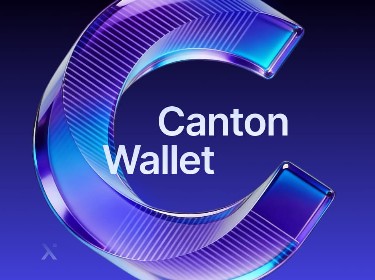If you are considering blockchain technology for your project and deciding between blockchain as a service and custom development, you are in the right place. We will explore the pros and cons of each approach to help you make an informed decision.
As the blockchain market is expected to surge to $825.93 billion by 2032, businesses are adapting by either embracing blockchain as a service (BaaS) or committing to the development of custom blockchain solutions. This is especially relevant for enterprises comparing cloud platforms with private blockchain development services that deliver tighter access control
Both approaches offer distinct advantages and challenges, requiring comprehensive IT consulting services and a detailed analysis of technical and strategic factors to determine the most suitable solution.
To assist in this complex process, we have engaged Eugene Birski, our senior business analyst and technology consultant, to explore both options in-depth and ensure you have the necessary information to choose wisely and confidently.
Let’s start!
Pros of blockchain as a service
We will not burden you with lengthy forewords and will get straight to the point.
Take a look at the key advantages of blockchain as a service (BaaS).
![]()
Streamlined deployment
Blockchain as a service provides a ready-to-use infrastructure that does not require extensive setup or specialized knowledge, which simplifies and streamlines the deployment of blockchain applications.
Thus, BaaS empowers companies to focus primarily on refining their applications’ core functionalities and frees them from the intricacies associated with managing blockchain technology.
Faster time-to-market
Utilizing a BaaS platform can significantly reduce the time required to launch a blockchain project.
The built-in consensus mechanisms and pre-configured network settings eliminate the need for extensive backend development, thereby shortening the development timeline and enabling faster go-to-market strategies. This is particularly beneficial in industries where speed is critical to capitalizing on market opportunities.
Ready-made infrastructure
Choosing BaaS allows companies to save on the substantial upfront costs of setting up a dedicated blockchain infrastructure, which includes not only hardware and software but also the staffing required for development and maintenance, especially in metaverse consulting & development services and projects.
By outsourcing these needs to a blockchain as a service provider, businesses can convert these capital expenditures into operational expenses, which are more manageable and predictable.
Top 10 Blockchain Use Cases in 2026 and Beyond
How to Select The Best Blockchain Platform
Continuous support and updates
BaaS providers offer ongoing support and regular updates to their platforms, ensuring that all deployed blockchain solutions are up-to-date with the latest security patches and functionality enhancements.
Sometimes, the support extends to handling complex issues such as scalability and interoperability, which are indispensable for maintaining the robustness and effectiveness of blockchain applications over time.
Expense savings potential
Adopting a BaaS model can be more economical than developing a blockchain from scratch, particularly for small to medium-sized enterprises that may lack the financial resources for such a significant investment.
As well as this, the scalability of BaaS solutions also means that businesses can start small and increase their blockchain capabilities as needed without a substantial initial expenditure.
Reduced maintenance costs
With BaaS, the responsibility for maintaining the network infrastructure, including nodes and the associated hardware, lies with the provider.
This arrangement reduces the need for businesses to invest in their own IT infrastructure and technical staff dedicated to network maintenance, thereby lowering ongoing operational costs. For startups especially, leveraging BaaS can be a critical part of a successful startup MVP development strategy, allowing them to focus resources on core product features and market validation rather than the complexities of network upkeep. By minimizing infrastructure burdens early on, startups can accelerate their path to launching viable products.
What Is MVP in Software Development?
AI MVP Development: How to Validate Ideas Fast Without Breaking the Budget
Check out our extensive portfolio featuring dozens of successfully delivered blockchain projects and solutions
Limitations of blockchain as a service
In spite of its considerable advantages, BaaS does have some drawbacks that need to be taken into account.
Dependence on a provider’s infrastructure
Relying on a BaaS provider’s infrastructure means that any technical issues, such as downtime or security breaches, can directly impact the client’s operations.
Therefore, this dependence can be risky if the provider fails to meet uptime and performance standards and might lead to business disruptions and reputational damage.
Limited customization capacity
While BaaS offers ease of use and speed, it typically comes with predefined settings and limited options for customization.
For projects that require unique features or specific performance characteristics not supported by the standard BaaS offering, this limitation can be a significant drawback. It may hinder a business’s ability to innovate or differentiate itself in the market.
Conformity to the already-established logic
Clients of BaaS platforms must conform to the technical and operational parameters set by the provider, including consensus algorithms and blockchain configurations.
As a result, the lack of flexibility can be problematic for projects that need specialized solutions or wish to pioneer new approaches within the blockchain space.
Blockchain for Startups: Advantages and Applications
More Blockchain Use Cases to Explore This Year
Limitations in block processing
When using a shared blockchain infrastructure like blockchain as a service, the ability to process transactions and blocks can be limited by the network’s overall capacity and the activities of other users.
This may translate into slower transaction times during periods of high demand and affect the performance of applications that require real-time data processing.
Lack of network control
Utilizing a BaaS solution means ceding control over most network operations to the service provider, including updates, node management, and security protocols. Consequently, businesses may find themselves unable to make custom modifications or swiftly adapt to new challenges or opportunities in their industry.
Strict adherence to network rules
Being part of an existing blockchain network necessitates compliance with its established protocols and coding practices, which can limit the scope of what developers are able to create.
For example, a business using the Ethereum network would need smart contract development services in Solidity, which might require hiring specialists familiar with this programming language, increasing project costs and complexity. Additionally, the business would need assistance from a smart contract audit company to ensure the security and reliability of the contracts, further adding to the project’s requirements.
Explore our professional Ethereum development services and see how we can tailor smart contracts and optimize your blockchain solution to meet your business needs
Pros of custom blockchain development
Now, let’s move on to the key advantages of custom software development services.
![]()
Extensive сustomization capacity
Custom blockchain development significantly boosts businesses by providing a framework specifically designed for their unique operational and strategic objectives and allowing the integration of distinctive features such as specific consensus models and advanced security protocols.
For example, blockchain development services for the supply chain industry might focus on creating a transparent and immutable record of goods movement, while blockchain development services for the retail and eCommerce industry could prioritize secure payment processing and loyalty programs.
Furthermore, tailored blockchain solutions enable businesses to address particular challenges and optimize their operational processes, thus strengthening their industry presence. Blockchain development services for the real estate industry could streamline property transactions and reduce fraud, while blockchain development services for the fintech industry might focus on building decentralized exchanges or efficient cross-border payment systems.
Furthermore, tailored blockchain solutions enable businesses to address particular challenges and optimize their operational processes, thus strengthening their industry presence.
Increased security and control
Having direct control over the blockchain network enhances the security of the platform and allows for rapid implementation of changes and updates as needed without dependency on a third-party provider.
Besides, this autonomy ensures that the blockchain remains secure and compliant with industry standards, giving the enterprise a significant edge in maintaining trust and reliability in its network.
Blockchain and KYC: Expert Interview on Navigating Security and Compliance Challenges
Top 5 Web3 Security Tools in 2026
Optimized performance
With custom blockchain development services, companies have the liberty to optimize their blockchain architecture to achieve desired performance levels.
Adjustments can be made to transaction processing speeds, block sizes, and data validation methods to guarantee the blockchain operates efficiently under specific business conditions.
This guarantees the blockchain’s capability to manage expected loads and operate efficiently across diverse operational scenarios.
Greater flexibility in development
Companies pursuing custom blockchain development enjoy the flexibility of enhancing an existing blockchain or creating a new one from scratch to suit their exact requirements.
This advantage of custom development empowers businesses to prioritize unique features and foster innovation within their blockchain applications, all while closely aligning with their strategic objectives. Furthermore, by integrating zero-knowledge rollup scaling solutions, businesses can further enhance scalability and performance, ensuring that their custom blockchain not only meets current demands but also supports future growth and efficiency.
Innovation and market appeal
The launch of a new blockchain project has the potential to captivate the interest of both potential users and investors, especially when it introduces groundbreaking solutions or targets unexplored markets.
Plus, remember that by promoting development initiatives through press releases or social media channels, the visibility can be amplified, drawing in early adopters and catalyzing robust network growth from the outset.
See how PixelPlex’s blockchain developers helped the client create the HELO blockchain
Limitations of custom blockchain development
Custom blockchain development sometimes may not be an ideal option for some businesses. Here is why.
High resource investment
The development of a custom blockchain is a resource-intensive process that requires significant financial and human capital.
Moreover, it is important to consider that investments are needed not only for initial development and testing but also for long-term network maintenance and updates. Thus, it is evident that this initiative is very costly and you need to be prepared for it.
Technical challenges
Custom blockchain development entails complex technical challenges such as:
- ensuring the security of the network against attacks
- managing the scalability of the system as user numbers grow
- establishing a reliable consensus mechanism that aligns with the project’s goals
Another technical aspect involves optimizing transaction throughput and latency.
As the blockchain network expands, maintaining efficient transaction processing speeds becomes paramount to prevent bottlenecks and ensure a smooth user experience. This often necessitates advanced algorithms and innovative data structure solutions to strike a balance between speed, security, and scalability.
Maintenance responsibility
Maintenance responsibility represents a significant drawback in custom blockchain development. The development team is tasked with managing the entire infrastructure, including conducting regular updates, performing thorough security audits, and providing constant technical support. This necessitates a continuous investment in specialized personnel and advanced technology to ensure the blockchain remains secure and operational.
Compatibility issues
A newly launched blockchain typically faces significant challenges in securing ecosystem support, including compatibility with existing wallets, explorers, centralized and decentralized exchanges, and other services.
Thus, if you opt for a custom blockchain solution, remember that developing these components as well as many others from the ground up will require extra time and financial investment.
Challenges in building a user base
Establishing a user base for a new blockchain is a critical and challenging task. It requires strategic marketing and the creation of incentives to attract early adopters. Partnering with big data consulting experts can provide valuable insights into user behavior and market trends, helping to optimize outreach efforts and refine incentive strategies.
The achievement of this objective is essential for ensuring sufficient network activity and security. However, its attainment is uncertain, which presents a risk to the overall viability of the blockchain project.
Bottomline: BaaS vs custom blockchain development — what to choose?
There is no definitive answer to this question, as each business case and project idea is unique, and a one-size-fits-all approach is not the best tactic.
However, we do recommend that you review the transparent, comprehensive, and honest assessment of the pros and cons of both custom blockchain development versus blockchain as a service provided by our blockchain expert, along with insights from research and development.
This will help you decide which aspects are most important to you and how each option aligns with your specific goals.
But, to summarize — here is a breakdown of the main points for you to consider.
If you prioritize faster deployment, reduced costs, and prefer not to deal with any network maintenance tasks, then blockchain as a service may be the right option for you.
On the other hand, if you aim to integrate more unique features, enjoy greater flexibility, and stimulate market interest in your business, custom blockchain development could offer substantial advantages. For further guidance, you can contact our enterprise blockchain development company.
Top 10 Blockchain Development Companies in 2026
Top 10 Blockchain Use Cases In 2026: How Your Business Can Ride the Wave
Our team leverages TON’s scalable architecture and fast speed to deliver robust smart contracts and dApps. Explore our TON development services
How PixelPlex can help
If you are still struggling to make a choice, we invite you to explore our blockchain consulting services.
Our professionals employ a personalized approach tailored to each client’s specific ideas and requirements, guaranteeing that the final result will empower you to achieve your goals.
We will conduct detailed research into your business case and industry specifics, assess your resources and capabilities, outline all the pros and cons, and provide tailored recommendations on the best blockchain solution to proceed with.
Regardless of the blockchain option you choose, we will also assist you in implementing and deploying it to ensure high performance.
Our service offerings also extend to:
- Blockchain integration
- DeFi solutions implementation
- STO development services
- dApp development
- SaaS development services
- Mobile app development
- Web development
- Blockchain solutions optimization
- DevSecOps consulting
- NFT development services
- IoT development services
- Custom solutions development
- Blockchain API
- Web accessibility consulting
- Accessible web development
- FinTech, healthcare, real estate, retail, and oil and gas software development
Contact our blockchain and dApp development company now and let’s get your blockchain project started today.




